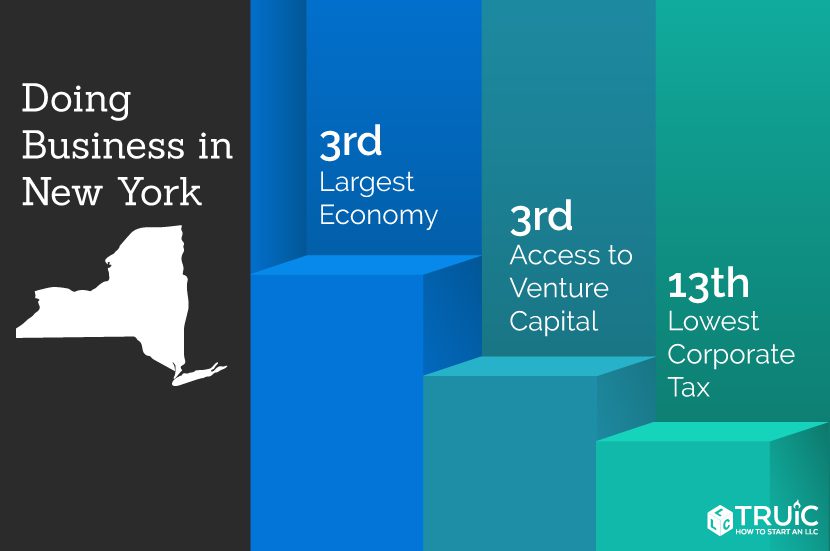The first step is to identify the business processes that you want to outsource. Once you’ve done that, research potential service providers and get quotes from them. Make sure to carefully review the proposals and choose a provider that has a good reputation and is able to meet your specific needs.
Once you’ve selected a provider, sign a contract with them and then begin working with them to implement the outsourcing arrangement.
- Define your business goals and objectives
- What do you hope to achieve by outsourcing? 2
- Research potential service providers
- Make sure to check out reviews and case studies to get a sense of each company’s strengths and weaknesses
- Create an RFP (request for proposal) outlining your specific needs and requirements
- This will help service providers know whether or not they’re a good fit for your project
- Compare proposals from different service providers and choose the one that best meets your needs
- Be sure to also consider price, quality, and customer service when making your decision
- Work with your chosen service provider to establish clear expectations and deliverables for the project
- By setting realistic goals, you can avoid any misunderstandings or surprises down the road
How to Get Clients for Outsourcing Business
The outsourcing business is a booming industry with plenty of opportunities for those who are willing to put in the work. However, as with any business, one of the most important aspects is acquiring clients. Here are a few tips on how to get clients for your outsourcing business:
1. Utilize online directories and job boards. There are many online directories that list businesses looking for outsourcing services. Make sure your business is listed in these directories and check them regularly for new leads.
Additionally, job boards can be a great place to find potential clients. Posting your services on job boards allows companies to come to you instead of you having to search for them.
2. Attend relevant trade shows and conferences.
If there are trade shows or conferences relevant to your industry, attend them! This will allow you to network with potential clients and market your services directly to those who may need them.
3. Get involved with chambers of commerce or other professional organizations .
Getting involved with local chambers of commerce or other professional organizations is a great way to meet potential clients and build relationships within the community . These organizations often host events where you can showcase your business , so make sure you take advantage of those opportunities .
Outsourcing Business Startup Ideas
When it comes to starting a business, there are a lot of things to consider. One of the most important decisions is whether or not to outsource certain aspects of your business. Many entrepreneurs choose to outsource their business startup ideas in order to save time and money.
There are a number of reasons why outsourcing your business startup ideas can be beneficial. First, it can help you save time. Trying to come up with all the details of your business on your own can be very time-consuming.
By outsourcing some of the work, you can free up your time so that you can focus on other important aspects of starting your business.
Second, outsourcing can also help you save money. Hiring someone to help you with your business startup ideas can be expensive, but if you outsource the work, you can get it done for much less.
This is especially helpful if you’re on a tight budget when starting your business.
Third, by outsourcing your business startup ideas, you can benefit from the expertise of others. When you try to come up with everything yourself, there’s a good chance that you’ll make some mistakes along the way.
However, when you hire someone else to do the work for you, they will likely have more experience and will be able to avoid making some common mistakes. This can save you both time and money in the long run.
Fourth, another benefit of outsourcing your business startup ideas is that it allows you to focus on other areas of your life while someone else takes care of the details for you.
If starting a business is taking over your life and causing stress, then hiring someone else to handle some of the work can be a huge relief. You’ll still be involved in every aspect of your business – after all, it’s YOURbusiness – but having someone else take care of some of the nitty-gritty details can make things much easier for everyone involved..
Last but not least reason why Outsourcing Business Startup Ideasis such beneficial thing is that usually this kind businesses has great team which already went through all ups an downs in area they are expertised so they know what works what doesen’t plus they have all needed equipment’s .
All these reasons makes Outsourcing Business Startup Ideasa no brainer however like with everything there are also disadvantages such as language barriers , cultural differences and loss control over project .
How to Find Companies That Need Outsourcing
When it comes to finding companies that need outsourcing, there are a few key things to keep in mind. First, consider what kinds of services or products you have to offer that could be outsourced. Then, research companies within your industry that may be in need of these services.
Finally, reach out to these companies directly to inquire about outsourcing opportunities.
If you’re not sure where to start when it comes to finding companies that need outsourcing, here are a few tips:
1. Do some research on common outsourcing needs within your industry.
This will give you a good starting point for identifying potential customers.
2. Use online directories and search engines to find contact information for target companies.
3. Once you’ve compiled a list of potential leads, reach out and introduce yourself as an expert in the field of outsourcing.
Be sure to include information about your experience and capabilities so that they can assess whether you’re a good fit for their needs.
Bpo Business Model
A business process outsourcing (BPO) company provides services to its clients that help them to run their businesses more efficiently. The most common type of BPO company is a call center, which handles customer service calls for its clients. Other types of BPO companies provide back-office support services such as data entry and claims processing.
The BPO business model has three main components: people, processes, and technology. These three components work together to provide the services that BPO companies offer to their clients.
People are the most important component of the BPO business model.
Without skilled and experienced employees, a BPO company would not be able to provide the high quality services that its clients demand. The best BPO companies invest heavily in employee training and development so that they can attract and retain the best talent in the industry.
Processes are the second component of the BPO business model.
A well-designed process ensures that work is completed accurately and efficiently. The best BPO companies have implemented processes that are benchmarked against industry standards so that they can continuously improve their performance.
Technology is the third component of the BPO business model.
Technology enables BPO companies to automate repetitive tasks and makes it possible for them to scale their operations quickly and efficiently. The best Bpo companies invest in cutting-edge technologies so that they can offer their clients state-of-the-art solutions.
How to Start Bpo Business
If you’re thinking about starting a BPO business, there are a few things you need to know. First and foremost, what is a BPO? A business process outsourcing (BPO) company provides services to clients that they would typically perform themselves.
This can include customer service, data entry, telemarketing, and more.
There are many reasons why companies choose to outsource their business processes. It can free up internal resources so that they can focus on more important tasks, it can save money by reducing labor costs, and it can improve efficiency and quality control.
If you’re interested in starting a BPO company, the first step is to research the industry. You need to understand the different types of services that are commonly outsourced and identify which ones you want to offer. You also need to research your target market and understand their specific needs.
Once you have a good understanding of the industry and your target market, you can start putting together a business plan.
Your business plan should include an overview of your company’s structure, its marketing strategy, its financial projections, and more. Once you have all of this information in place, you can start looking for clients.
The best way to find clients is through networking and word-of-mouth; let people know what type of services you offer and see if anyone has any leads for you.
Starting a BPO company requires careful planning and execution; but if done correctly, it can be very profitable. With a little research and hard work,you could soon be running your own successful outsourcing business!
Bpo Business Plan
A business plan is a written document that describes in detail how a business, usually a new one, is going to achieve its goals. A business plan lays out a written plan from a marketing, financial and operational standpoint.
Since BPO involves providing services to other businesses, it’s important to have a detailed and comprehensive business plan that takes into account all aspects of the company’s operations.
The business plan should include information on the company’s target market, its unique selling points, the services it plans to offer and how it will generate revenue. It should also include details on the company’s management team, its marketing strategy and its financial projections.
Outsourcing Company
Outsourcing companies are those that provide services to other businesses on a contract basis. These services can be anything from customer service to manufacturing and everything in between. Many businesses choose to outsource because it can save them money on labor costs, but there are also some drawbacks to using an outsourcing company.
Here is a look at both the pros and cons of outsourcing:
Pros of Outsourcing:
1. Save on Labor Costs: One of the biggest reasons why businesses choose to outsource is because it can save them a significant amount of money on labor costs.
When you outsource, you only have to pay for the services that you use, rather than hiring full-time employees who may not always be working. This can help keep your overhead costs down and increase your profits.
2. Access to Expertise: When you outsource, you have access to experts in various fields that you may not have in-house.
This can be beneficial if you need specialized services or just want to tap into a different skillset than what you currently have within your organization.
3. Increased Flexibility: Outsourcing can also give you more flexibility when it comes to scaling up or down your operations. If business slows down, you can simply reduce the number of services that you’re using without having to lay off any employees.
Conversely, if business picks up, you can quickly add more services as needed without having to go through the hassle and expense of hiring new staff members.
Cons of Outsourcing:
Is Bpo Business Profitable
Yes, BPO business is profitable. It has been estimated that the industry will be worth $154 billion by 2025.
There are a number of reasons why BPO business is so profitable.
Firstly, it helps organisations to save on costs. By outsourcing non-core activities, businesses can focus on their core competencies and save on overheads such as office space, equipment and staff costs. Secondly, BPO providers have the expertise and experience to deliver quality services.
They are also able to scale up or down according to the client’s needs, which makes them very flexible. Finally, BPO contracts usually have long terms (5 years or more), which provides stability and predictability for both parties involved.

Credit: www.virtasktic.com
What are the 6 Types of Outsourcing?
Outsourcing has become a commonplace business strategy in recent years, as companies attempt to cut costs and improve efficiency. There are many different types of outsourcing, each with its own advantages and disadvantages. Here are six of the most common types of outsourcing:
1. Manufacturing Outsourcing: This type of outsourcing involves sending manufacturing work to an external company or country. It can be used to reduce labor costs, access new markets or exploit economies of scale. However, it can also lead to quality control issues and a loss of competitive advantage.
2. IT Outsourcing: Many companies outsource their IT functions, such as software development or technical support. This can help save on internal costs and allow businesses to focus on their core competencies. However, it can also lead to security risks and a loss of control over critical business functions.
3. Human Resources Outsourcing: HR outsourcing is often used to handle payroll, benefits administration and other employee-related tasks. This can free up internal resources and expertise, but it can also result in reduced employee morale and decreased flexibility in managing the workforce.
4..
Business Process Outsourcing (BPO): BPO involves contracting with an external company to handle non-core business processes such as accounting, customer service or data entry. It can provide cost savings and improved efficiency, but it can also lead to problems with quality control and a loss of institutional knowledge within the company..
5.. Facilities Management Outsourcing: Facilities management outsourcing (FMO) refers to the contracting out of building maintenance, security or other facility-related services..
This type of outsourcing can save on internal costs while still providing high-quality services.. However,. it may result in reduced employee satisfaction due to lower wages paid by the contractor,. as well as increased environmental concerns if the contractor does not have strong sustainability practices in place.. 6.. Knowledge Process Outsourcing (KPO): KPO is similar to BPO,. but typically involves more complex or specialized work tasks such as research,, analysis,, marketing or financial modeling… As with BPO,. KPO can offer cost savings and improved efficiency,. but there is also a risk that critical knowledge will be lost from within the company if employees leave for better opportunities elsewhere…
How Do I Find Clients for Outsourcing?
There are a few ways to find clients for outsourcing. The most common method is through online job boards or freelancing platforms.
To get started, create a profile on one of these platforms and start applying for gigs that match your skillset.
You can also search for specific companies that outsource work and reach out to them directly.
Another way to find clients is through networking. Attend events or join groups related to your industry and let people know you’re available for outsourcing projects.
You can also connect with potential clients on social media platforms like LinkedIn.
Is Outsourcing a Good Business?
There is no simple answer to the question of whether or not outsourcing is a good business decision. It depends on a number of factors, including the specific industry and company involved, the nature of the work being outsourced, and the country in which the work will be performed.
Outsourcing can be a good way to save money on labor costs, but it can also lead to problems with quality control and communication.
When done well, outsourcing can be a win-win situation for both the company and its employees; when done poorly, it can be detrimental to both.
When deciding whether or not to outsource work, companies need to carefully consider all of the potential risks and benefits. Only by doing so can they make an informed decision that is in line with their overall business goals.
Is Outsourcing Illegal?
There is a lot of debate surrounding the legality of outsourcing. Some people argue that it is illegal to outsource work to another country, because it takes away jobs from citizens in developed countries. Others argue that outsourcing is legal, because companies are free to choose where they want to operate and how they want to allocate their resources.
The truth is that there is no definitive answer to this question. It depends on the specific circumstances of each case and on the laws of the country in question. In general, however, it is legal for companies to outsource work to another country.
There may be some restrictions on how this can be done, but in most cases it is allowed.
How To Start An Outsourcing Business | ZERO DOLLAR INVESTMENT
Conclusion
Are you thinking of starting an outsourcing business? If so, this blog post is for you! It covers everything you need to know about how to start outsourcing, from finding the right clients to building a team of skilled workers.
First, let’s discuss finding the right clients. When you’re just starting out, it’s important to build a client base that will be loyal and provide you with consistent work. To do this, focus on targeting small businesses or startups that don’t have the internal resources to handle all their tasks themselves.
Once you’ve built up a good relationship with these clients, they’ll be more likely to give you referrals or repeat business in the future.
Next, let’s talk about building your team. This is arguably the most important part of starting an outsourcing business, as your team will be responsible for actually doing the work.
To find talented workers, post job listings on online job boards or reach out to freelancers directly. Once you’ve assembled a group of skilled workers, train them on your company’s procedures and systems so they can hit the ground running and start completing projects for clients quickly and efficiently.
By following these tips, you’ll be well on your way to successfully starting an outsourcing business!



